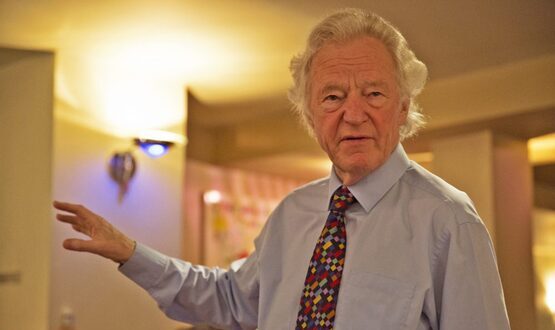New Goldster Health Service aims at prevention and self-care
- 11 July 2023

Putting an understaffed and overburdened NHS on a sustainable footing will require a focus on preventative care and self-management of health conditions, especially for the over-50s, one of the country’s most prominent clinicians tells Digital Health News.
Professor Sir Muir Gray, an advisor to Public Health England, executive director of the Oxford Centre for Triple Value Healthcare and a director of the Optimal Ageing Programme, is launching a new initiative, the Goldster Health Service (GHS), aimed at addressing the problems posed by population ageing.
“Ageing is not a problem itself until your 90s,” he says. “The major problem is a loss of fitness. Genetically we are evolved to run about without many calories. For the last two generations, we have run around with lots of calories.” Most of disease, especially chronic illnesses such as diabetes, is environmental, he adds, and is complicated by the loss of fitness.
Sir Muir sees the need for a “revolution” that communicates to older people the key importance of activity – physical, cognitive and emotional – regardless of the type or number of conditions they have.
A recent report from Age UK addresses the strain on the NHS quite simply by saying “the crisis in the NHS is largely a crisis in older people’s preventive care”. It also says “the proportion of older people feeling supported to manage their health condition has fallen by a fifth since 2016/17”. The GHS is launching to help relieve these pressures.
The GHS is envisioned as a digital therapeutic community and its website has the declared ambition to “help 100 million people age well over the next 10 years. Members pay £3 a month for access to classes ranging from yoga to brain agility through art to massage for pain relief.
Users can monitor their physical, cognitive and emotional well-being through online evaluations that provide a way for members to navigate their way to greater empowerment over their own health.
He adds: “It starts off with an assessment, like a sextant: where are you on your journey? Do you have any long-term conditions? What are your exercise patterns? Once you are using the sextant, we can provide a map and a compass.”
An initial blood sample allows the GHS to suggest different levels of exercise tailored to the user, as well as diets and help with stress, anxiety or depression. A range of experts, including physicians and psychologists, are also on-hand to help users regain lost abilities and reduce the risk of diseases like dementia and stroke to combat the effects of diseases when or before they occur.
Addressing a global health crisis
The NHS, Sir Muir observes, is not unique in its focus on diagnosis and acute treatment over preventative care, but once patients start treatment or are diagnosed with a chronic condition, they are largely on their own.
“We can reach people digitally, bringing together people with the same problem; we call it buddy care,” he says.
Promoting self-care is essential both as a way to save resources and to alleviate the demand for social care, which Sir Muir notes is feared by people as much as any disease.
“If we start getting people in their 80s and 90s to be more physically active, when a chest infection comes along they are more resilient and less likely to be admitted to hospital,” he says, noting that a 60-year old today often has a life expectancy of 30 more years. The project’s primary aim, he says, is to increase healthy life expectancy and it hopes to get the pension industry to encourage people to take well-being into account in addition to financial security.
Another aim of the GHS, he says, is to figure out how to spend less on medicines. He adds that 10% of drugs used in the healthcare system are ineffective and 20% of hospital admissions are due to side effects of medicines. Rather than reaching for the prescription pad, Sir Muir says he would like doctors to look more at prescribing activities; in the 10 years since he suffered a heart attack, he says, he has gone through “hundreds of boxes of pills” but not received a single letter about diet or exercise.
He is also skeptical about concerns that older patients will shy away from digital care platforms, noting that 70% of the over 60s are online. If this cohort that is comfortable with the internet is enabled to take action, he says, then the NHS can concentrate on those who are not and who are often affected by many other factors, notably deprivation.
Ultimately, the project’s focus on self-care and empowerment comes from a recognition that older people will increasingly need to take more responsibility for their own health.
“There will never be enough GPs and practice nurses,” Sir Muir concludes. “The most important person in healthcare is yourself and knowledge is the most important thing we can give you.”




